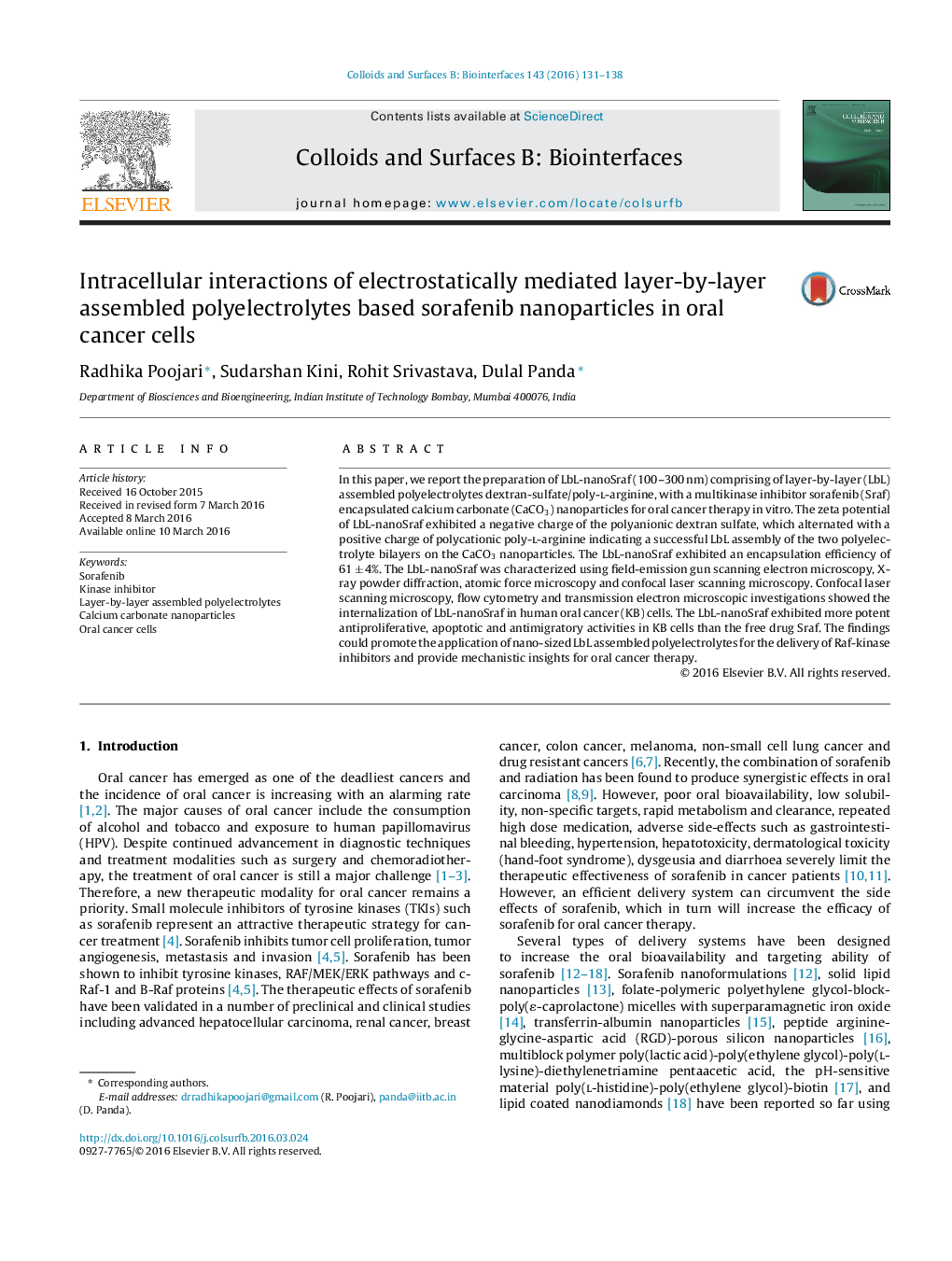| Article ID | Journal | Published Year | Pages | File Type |
|---|---|---|---|---|
| 599032 | Colloids and Surfaces B: Biointerfaces | 2016 | 8 Pages |
•Oral cancer cells efficiently internalize sorafenib nanoparticles.•Sorafenib nanoparticles exhibit potent antiproliferative activity.•Sorafenib nanoparticles display strong antiapototic activity.•Sorafenib nanoparticles suppress the migration of oral cancer cells.
In this paper, we report the preparation of LbL-nanoSraf (100–300 nm) comprising of layer-by-layer (LbL) assembled polyelectrolytes dextran-sulfate/poly-l-arginine, with a multikinase inhibitor sorafenib (Sraf) encapsulated calcium carbonate (CaCO3) nanoparticles for oral cancer therapy in vitro. The zeta potential of LbL-nanoSraf exhibited a negative charge of the polyanionic dextran sulfate, which alternated with a positive charge of polycationic poly-l-arginine indicating a successful LbL assembly of the two polyelectrolyte bilayers on the CaCO3 nanoparticles. The LbL-nanoSraf exhibited an encapsulation efficiency of 61 ± 4%. The LbL-nanoSraf was characterized using field-emission gun scanning electron microscopy, X-ray powder diffraction, atomic force microscopy and confocal laser scanning microscopy. Confocal laser scanning microscopy, flow cytometry and transmission electron microscopic investigations showed the internalization of LbL-nanoSraf in human oral cancer (KB) cells. The LbL-nanoSraf exhibited more potent antiproliferative, apoptotic and antimigratory activities in KB cells than the free drug Sraf. The findings could promote the application of nano-sized LbL assembled polyelectrolytes for the delivery of Raf-kinase inhibitors and provide mechanistic insights for oral cancer therapy.
Graphical abstractFigure optionsDownload full-size imageDownload as PowerPoint slide
